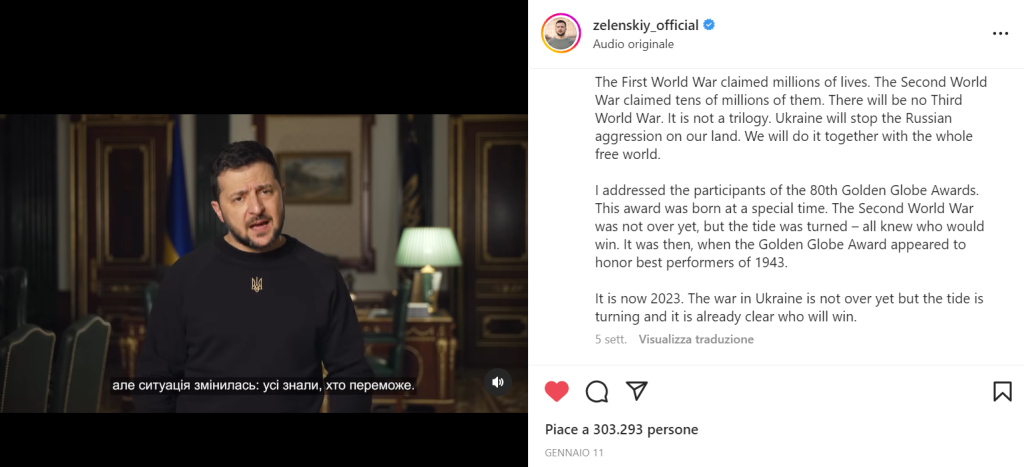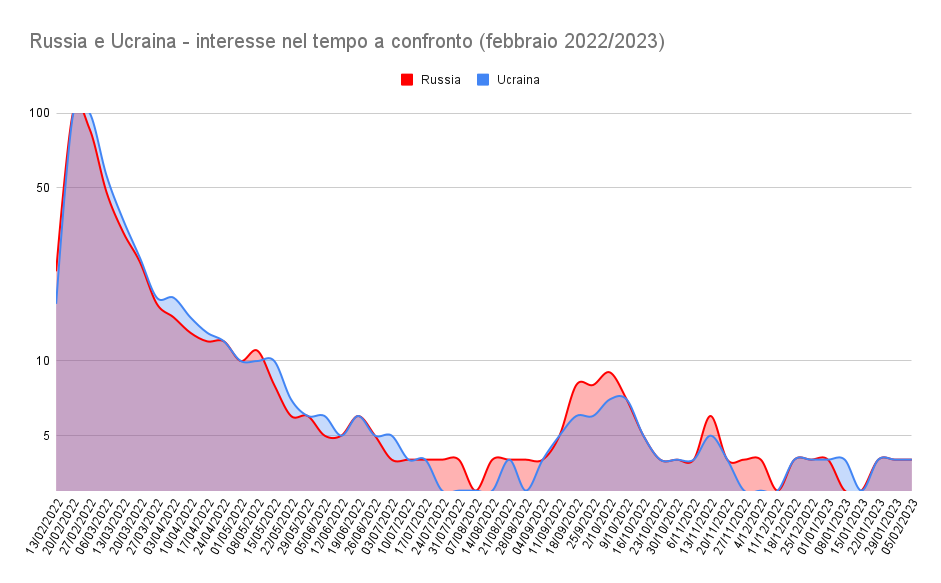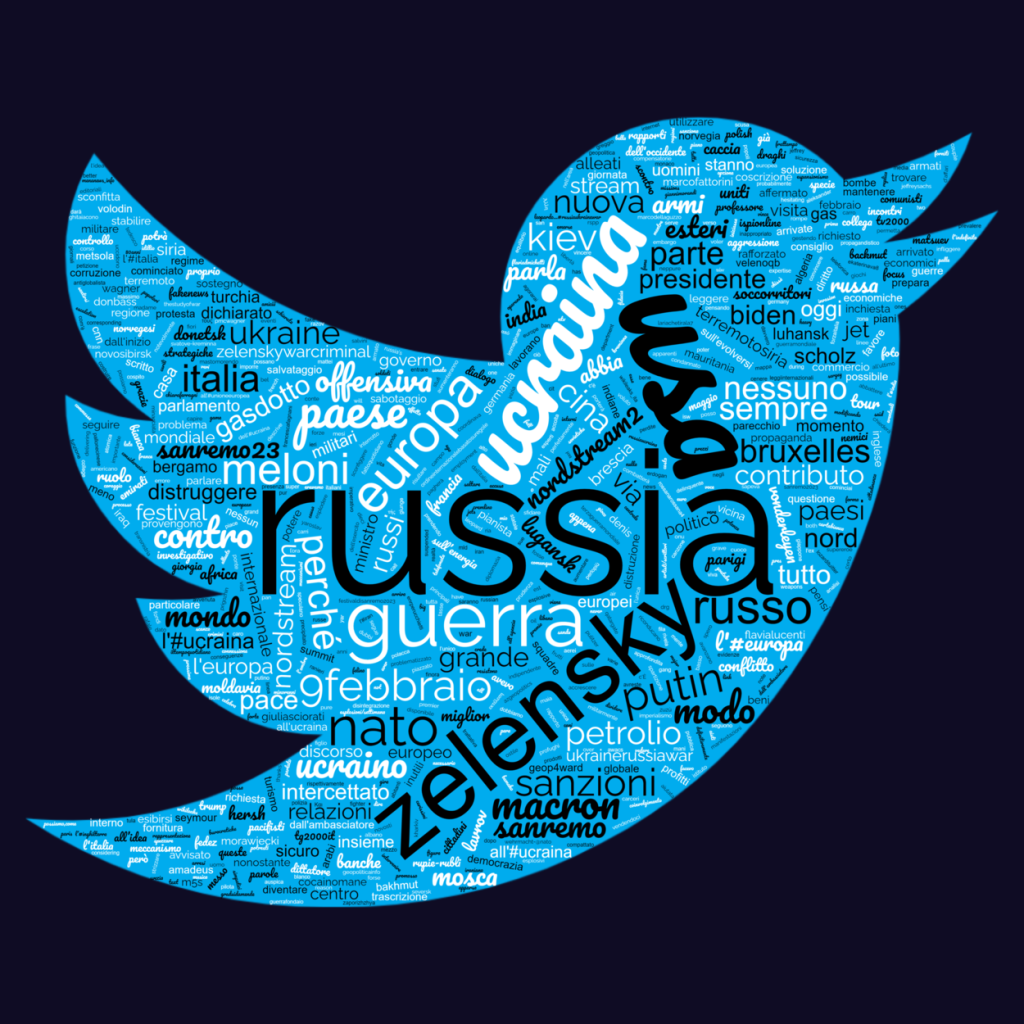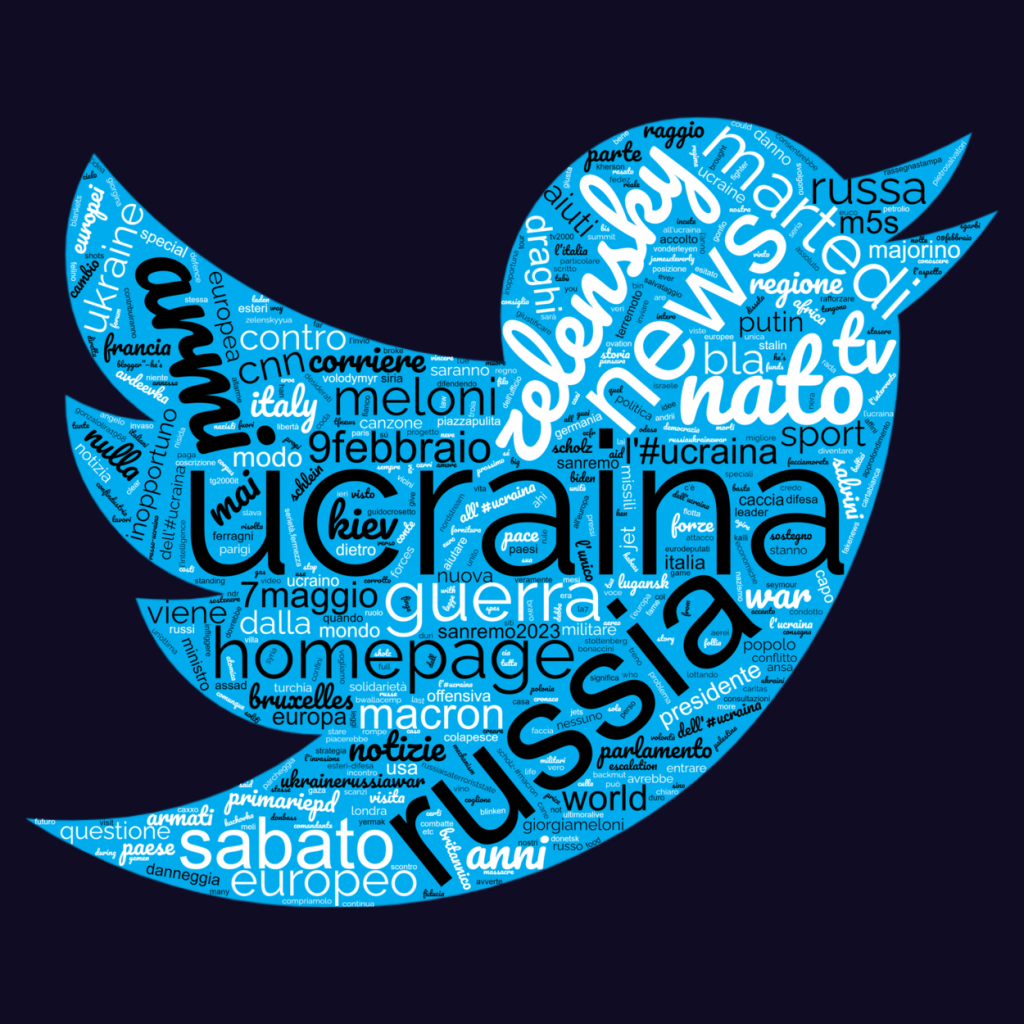On February 24, 2022, news, images, and stories of the Russian aggression in Ukraine brought the reality of an event that seemed beyond the realm of possibility for generations born after World War II. An armed conflict on the doorstep of Europe, an event that emerged in an original context, in the age of communication, social media, and old and new media.
The attention to the conflict in Ukraine has been capitalized on in a novel way, and the discussion has dominated various platforms. Zelensky, the president of the offended country, immediately played a visible role, becoming the protagonist of all the media spaces that define contemporary communication. On social media and television, at events such as the Golden Globe and the Venice Film Festival, he was able to attract a more or less constant focus on the fate of the Ukrainian people through his own persona.

It has been observed that war has become a predominant theme not only in news contexts but also in “mundane” areas and spaces. The latest example for Italy is represented by Sanremo. During the final of the Italian song festival on Rai, Volodymyr Zelensky’s speech was supposed to be broadcasted. Amid controversies, it was stated that it was not an appropriate space, and they ended up staging the letter from the Ukrainian president read by the host Amadeus.
Therefore, it is not surprising that in the analysis of Twitter interventions during the week between February 6 and 12, the discussion related to the words “Russia” and “Ukraine” referred to terms such as “Sanremo,” “Saturday,” “Meloni,” “Macron,” and “Fedez.” During the days when the Italian controversies resulted in limitations on Zelensky’s intervention methods in Sanremo, the Ukrainian president met with Macron and Scholz in Paris. The comments on the absence of the Italian Prime Minister from the meeting with the other two European leaders added to those on the choice not to have the Ukrainian president directly intervene at the Italian song festival, as happened in other similar contexts.
It is a fact, however, that over time, people’s attention and consequently the way of covering and telling the war have changed. Not even the strength of the Ukrainian president’s personality could avoid the physiological ups and downs in people’s interest.
Observing the qualitative trend of the number of news on Italian public television, it can be seen how the peak of attention, with a decreasing trend, for television and web transmissions occurred between February 24 and June 13, 2022. There was a higher density of content dedicated to the conflict on television than on the web. During the summer, attention to Ukraine and the war decreased, only to increase again, albeit in smaller numbers than in the first period of the conflict, between October 2022 and January 2023.
These trends are the same as those observed on other platforms. Zelensky experienced a sudden and exponential growth in followers on both his Twitter and Instagram profiles between February and March 2022. From that moment, his social popularity continued to grow until the summer when the arrival of new followers stabilized. Between October 2022 and January 2023, however, his following increased again.
These changes in interest have gone hand in hand not only with events on the ground but also with the number of publications made by the Ukrainian president. From May to January, the number of tweets launched by Zelensky did not exceed one hundred. This is probably one of the reasons for the significant drop in reactions to his posts in the summer and autumn months.
Also, on his Instagram profile, social reactions directed at the Ukrainian president’s posts progressively decreased from 129 million in March 2022 to 27 million in January 2023. The loss was 100 million reactions.
The progressive desensitization not only to news, but also to social discussions about the war, is also evidenced by the decline in searches conducted on the web using three keywords: “Ukraine”, “war in Ukraine”, “Russia”, and “Russia and Ukraine”.

All the keywords reached their peak in searches between February 20 and 27, in the days preceding the actual outbreak of the conflict, but already with insistent voices anticipating a possible Russian aggression. The frequency of searches remained high, albeit gradually decreasing, until mid-May 2022. After that moment, people reduced the number of Google searches related to the conflict between Russia and Ukraine.
From all these elements, it can be seen how, one year after the war, attention towards Ukraine has stabilized in the tragic ordinariness of the conflict. Observing the media trends, it emerges that the discussion, especially in Italy, is focused on diplomatic issues, aspects related to the modalities of relations between states, and the relevance of the different political actors operating on the scenario of the conflict.
Leggilo anche in italiano



